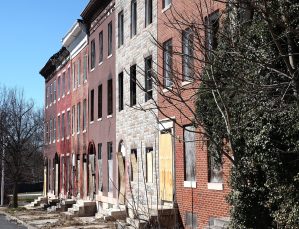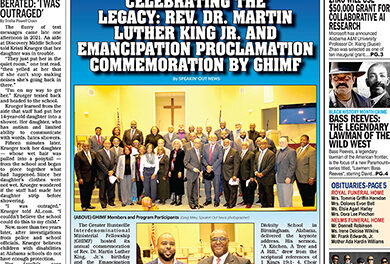By Tashi McQueen,
AFRO Political Writer,
tmcqueen@afro.com
Baltimore may be getting its own land bank to address the vacant housing crisis seen across the city.
“Our land bank would be a quasi-governmental entity,” said Councilwoman Odette Ramos (D-14) at a recent Land Bank 101 Community Session she co-hosted with Councilman James Torrence (D-07).
“It would still be a part of the city, but it would also have flexibility in hiring and raising funds. The goal is to acquire advanced properties and get them out the door to people who will do something with that residence, whether they’re developers who are friendly with residents or whether it’s a community land trust.”
In March of this year, Ramos and Torrence introduced legislation 23-0363, which proposes the Land Bank Authority.
“The focus of the land bank is to go into Black communities – that have not seen the investment or have seen substantial disinvestment since redlining – where we can make a substantial investment with both private equity and public funds to get the property into our hands,” said Torrence.
Ramos said the Land Bank Authority proposal is currently awaiting a hearing.
The recent land bank information session catered to those interested in investing in or creating land banks and Baltimore community members looking to know more about them. It provided examples of successful land banks in Detroit, New York and Ohio.
“In our case, we use the city’s tax foreclosure powers. Sometimes we purchase [property] and sometimes we get property donated to us,” said Executive Director of the Greater Syracuse Land Bank, Katelyn Wright. “For the most part, we determined that the tax foreclosure process was the most efficient way to do it.”
Ramos and Torrence said this is the beginning of numerous land bank information sessions with the public.
“Land banks in general are most effective when they can be nimble and flexible in a way that the traditional governmental systems can’t,” said Brian Larkin, director of the National Land Bank Network. “You have some land banks that are staffed entirely out of departments of government, you have others that are an entirely standalone organization.”
Another tool the city is using to address the vacancy crisis is the in-rem process. The Department of Housing and Community Development, describes in-rem as a process where the City can confiscate vacant property if the municipal liens surpass the property’s assessed value.
During the 2023 General Assembly session, additions to the original in-rem legislation passed in SB855/CH408 which will help the city own, manage and sell more vacant properties.
“Everybody always looks for a single solution, but Baltimore’s vacant problem is deep and complex,” said the Executive Director of the Community Development Network of Maryland, Claudia Wilson Randall. “What’s important about a land bank is that it can set priorities around legacy residents and ZIP codes, and it can direct a community’s agenda in a way that the city and the private market cannot.”
With about 14,000 identified vacant homes, according to the Department of Housing and Community Development, Baltimore is facing a housing crisis creating unhealthy environments and adding to homelessness.
One resident shared his view of land banks saying it could work if everyone commits.
“Let me first acknowledge former Mayor Sheila Dixon for originating and introducing the land bank concept back in 2009,” said Will J. Hanna II, CEO of the New Park Heights Community Development Corp. “The concept works only when everyone is all-in. But we believe that before going full throttle with the legislation, it should be piloted in an area with a high concentration of vacants first.”
In the initial press conference for the land bank, Ramos and Torrence confirmed that areas with a high concentration of vacants are the main target as they desire to flip an entire block of vacant homes versus one or two per block.
Torrence said council members are currently in negotiations about what the land bank will look like.
Tashi McQueen is a Report For America Corps Member.
The post Baltimore City council members lead land bank initiative to address vacant housing crisis appeared first on AFRO American Newspapers .











